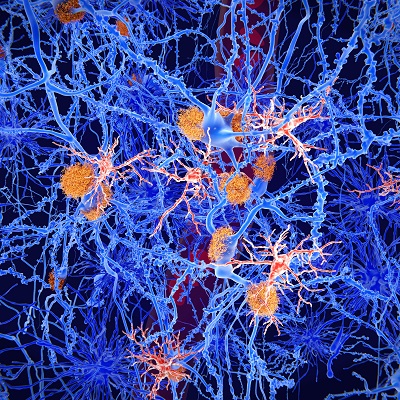November 30, 2022 -- Researchers at the New York University (NYU) Grossman School of Medicine and the Icahn School of Medicine at Mount Sinai have found that a gene mutation may prevent brain cells from clearing away plaque -- protein filled clumps that build up in the brain and are characteristic of Alzheimer's disease.
The research on mice, published November 30 in Alzheimer's and Dementia: The Journal of the Alzheimer's Association, may offer a new target for therapies directly affecting this gene mutation.
The gene, inositol polyphosphate-5-phosphatase D (INPP5D), contains instructions for building enzymes that prompt immune cells called microglia to engulf plaque. Plaque buildup initiates an immune response that kills brain cells and may lead to Alzheimer's-related dementia.
Researchers found that within three months, mice genetically engineered to lack INPP5D in their microglia developed 50% more plaque -- along with larger plaques -- than mice with normal microglia. They also found that more microglia clustered around plaque sites in mice lacking INPP5D -- possibly because the malfunctioning immune cells could not digest the plaque they swallowed, so more microglia were recruited to clear it away.
The team also measured gene activity in rodent brain tissue samples to determine how INPP5D interacts with other genes. They compared these findings to previous research on humans with Alzheimer's and observed the same genetic changes in the gene cluster linked to plaque, indicating that this cluster may play a similar role in human brain cell death. They next plan to examine how microglia malfunction without INPP5D, and to identify other genes potentially involved in immune cell regulation.
"In the future, experts might be able to tailor therapies around this gene to potentially slow down the progression of conditions such as Alzheimer's disease, glaucoma, and multiple sclerosis," co-senior author Shane Liddelow, PhD, an NYU neuroscientist, said in a statement.
Disclosure: Shane Liddelow maintains a financial interest in AstronauTx, a company investigating possible treatment targets for Alzheimer's disease.
Copyright © 2022 scienceboard.net














